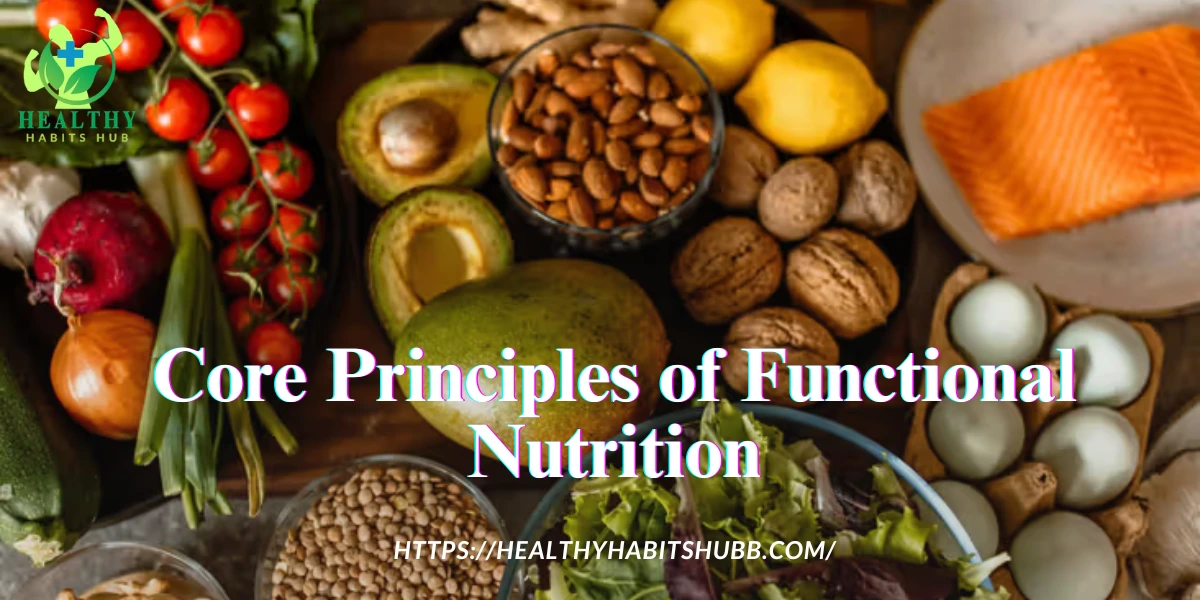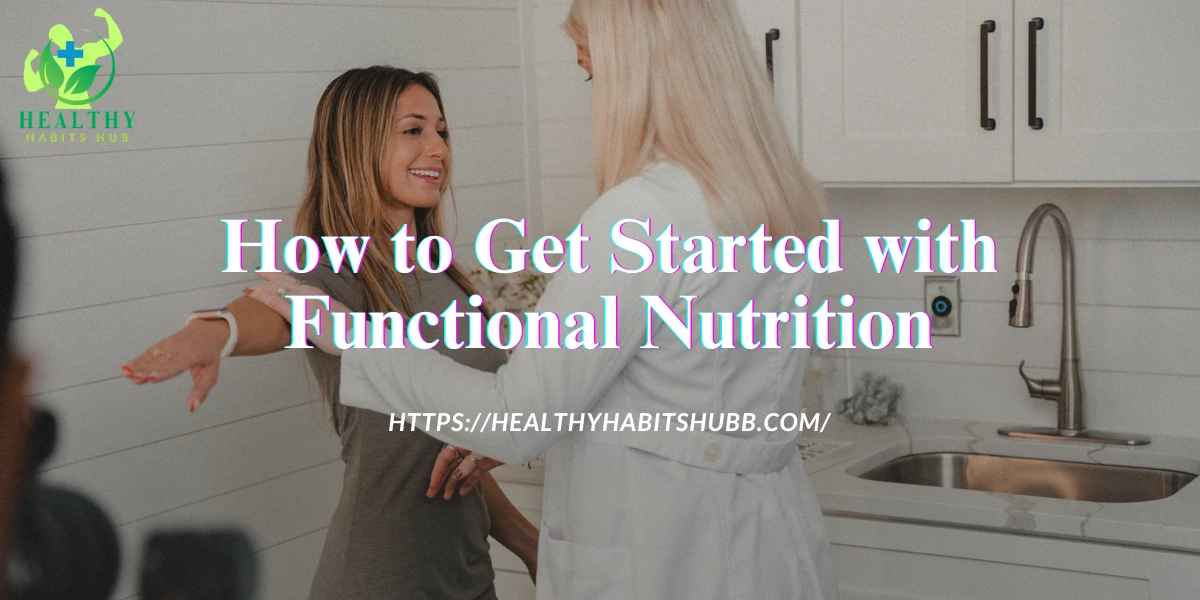In a country where more people complain about belly aches than about bad credit, something has to give. Functional nutrition stages a quiet revolution right on your dinner plate. Instead of trimming calories or chasing the latest macro fad, the routine nudges you toward foods that give your bones, guts, and mood an honest hand.
Young folks scrolling through wellness TikToks now treat spinach like a superhero sidekick. They eat kale the way their grandparents polished off mustard greens- not because it tastes like a cheat day but because it feels like insurance. That mindset is pushing functional eats into breakfast bowls, office meal-preps, and late-night fridge raids faster than any celebrity endorsement.
This guide is a one-stop crash course. Well sift through what functional nutrition really means, why it matters, and the science holding it all together. By the last paragraph, you’ll see why some diet planners now call these kitchen tricks preventive medicine in a bowl.
What is Functional Nutrition?
Table of Contents
Toggle
Functional nutrition treats every meal like medicine. Instead of counting calories for the sake of a number, this science-backed way of eating turns food into a toolkit for better health. Researchers track how vitamins, minerals, and even tiny plant compounds shake hands with your immune, digestive, and metabolic systems. That hand-shake is where disease-fighting magic often begins.
Key Features of Functional Nutrition
- Personalized: No two meal plans are alike because no two bodies are alike.
- Preventive: The goal is to sidestep illness rather than mop up the mess later.
- Holistic: Minds, moods, and muscles all get a seat at the table.
- Evidence-Based: Every bite sits on a pile of lab studies and clinic trials.
Why Functional Nutrition Matters
Chronic problems like obesity, diabetes, and arthritis keep climbing. Traditional diets often throw up their hands and shuffle the same old foods around. In contrast, functional nutrition dives deeper by:
- Targeting Root Causes: Headaches may be a symptom, but blood-sugar spikes can be the bully in the background.
- Enhancing Nutrient Absorption: Happy guts grab more vitamins, and that extra mileage shows up in energy levels.
- Supporting Detoxification: Foods that nudge the liver and kidneys stay front and center on the shopping list.
- Boosting Immunity: Garlic, ginger, and leafy greens get all-star status for keeping colds in check.
The Science Behind Functional Nutrition
Functional nutrition isn-t just about filling your belly; it treats every bite like a tiny message your body reads. Researchers say your dinner plate double-checks the blueprints inside your cells.
Nutrigenomics: How Food Talks to Your Genes
Nutrigenomics studies the whispering between food molecules and your genes. A spoonful of garlic, for instance, can flip one gene on and dim another, which may keep your heart younger than your driver-s license suggests.
The Gut-Brain Axis
Another layer is the gut-brain highway, wired by the vagus nerve and fueled by hormones only busy scientists can pronounce. When microbes in your belly behave, clearer thinking and calmer moods often ride shotgun.
Bioactive Compounds
World Food Network grants leafy plants a bonus profile-its those quiet compounds, like polyphenols, that steal the spotlight. Take curcumin in turmeric; one sprinkle can quiet swelling louder than most over-the-counter pills.
Core Principles of Functional Nutrition

At the core, functional nutrition flies its flag over whole, barely-touched foods. A meal built from fresh apples, brown rice, flax seeds, and grilled salmon gives every cell something useful to chew on.
Custom Eating Plans
One blanket diet never fits everyone. A good functional nutritionist examines your genes, routines, and medical history before sketching an eating plan that feels personal.
Gut Health Focus
Your digestive system plays referee for your whole body. Loading up on yogurt, kefir, and sauerkraut supplies probiotics, while garlic, onion, and banana deliver the prebiotics that keep gut bacteria diverse.
Fighting Inflammation
Constant low-grade swelling can sneak into joints, arteries, and organs. Leafy greens, blueberries, salmon, and a splash of olive oil serve as frontline defenders in that battle.
Mindful Eating Habit
Paying attention to each bite can be as powerful as the food itself. Slowing down, chewing thoroughly, and letting flavors linger help digestion and pleasure keep pace.
Functional Nutrition in Action

- Breakfast Inspiration
- Smoothie Bowl: Toss spinach, banana, almond milk, chia seeds, and protein powder into a blender; pour and crown with berries and nuts for crunch.
- Oatmeal Bowl: Prepare whole oats in almond milk, fold in flaxseeds and walnuts, and finish with a honey drizzle that turns sticky goodness into dessert.
- Lunch and Dinner Picks
- Quinoa Medley: Fold roasted zucchini, bell pepper, and chickpeas into fluffy quinoa, then dress with a zesty lemon-tahini blend that marries earth and sea.
- Grilled Salmon Plate: Char a salmon fillet until crisp on the outside, plate beside vibrant steamed broccoli and finish with a spoonful of sweet potato mash that comforts every bite.
- Snacks
- Crunchy Apple Slices and Almond Butter: Dip, crunch, repeat-leave the peeler in the drawer.
- Creamy Greek Yogurt Topped with Berries and Granola: Sweet-tart fruit mingles with velvety yogurt and a few crispy flecks.
- Hydration
- Herbal Teas: Brew chamomile for calm, sip ginger for zing, or steep green for an antioxidant hit.
- Infused Water: Slide in cucumber, a wedge of lemon, and a sprig of mint. Your glass suddenly feels like a day at the spa.
Functional Nutrition for Specific Health Goals
Weight Management
Fill the plate with spinach, grilled chicken, and a drizzle of olive oil. Low-cal but never low-satisfaction.
Functional nutrition offers a highly personalized and effective approach to weight management by addressing the root causes of weight gain and metabolic dysfunction rather than just focusing on calorie restriction or generic diet plans
Immune Support
Snack on orange slices, toss pumpkin seeds into a salad, or swirl kefir into a smoothie. Your body gets the triple punch.
Functional nutrition offers a targeted, science-backed approach to supporting immune health by focusing on whole, nutrient-dense foods and addressing the unique needs of each individual.
Mental Health
Salmon and walnuts feed the brain with Omega-3s; a square of dark chocolate and a side of kale sneak in magnesium. Happy head, happy mood.
Functional nutrition takes a comprehensive, root-cause approach to supporting mental health by addressing the unique biochemical, genetic, and lifestyle factors that influence mood, cognition, and emotional well-being
Energy and Vitality
Start the day with steel-cut oats, add turkey to lunch, and finish with roasted sweet potatoes at dinner. Steady fuel, no midday crash.
Functional nutrition offers a science-based, personalized approach to boosting energy and vitality by addressing the root causes of fatigue and optimizing the body’s metabolic systems.
The Role of Supplements
Whole foods star, but the supporting cast of powders and pills can make a difference.
- Probiotics: Bonus bacteria for a calmer gut.
- Omega-3s: Fish oil or algae-based for a stronger heart and sharper mind.
- Vitamin D: Sunshine in a capsule to keep bones sturdy and immunity ready.
- Magnesium: keeps your muscles and nerves firing the way they should. Just remember: a good doctor or dietitian can steer you in the right direction before you start popping pills.
Challenges and Considerations

Accessibility
Not everyone can stroll into a grocery store and choose between kale, quinoa, and fresh salmon. Local community gardens, pop-up farmer’s markets, and even neighborhood swap boards online can help fill that plate.
Cost
That shiny organic label sometimes feels like it costs more than the rent. Shopping for produce in-season and buying staples in bulk usually trims the grocery bill.
Misinformation
Instagram wellness hacks often sound better than they are. Sticking with peer-reviewed articles and asking licensed professionals is the safest way through the health hype.
The Future of Functional Nutrition
Tech never sits still, and neither does food science. Customized nutrition apps, powdered gut boosters, and mapping your DNA to decide what to eat are already inching into grocery aisles. As new studies keep linking food to everything from mood to metabolism, functional approaches may end up at the center of preventive medicine, not just on its fringe.
Functional nutrition sits at the intersection of vigorous scientific inquiry, surging consumer interest, and constant market experimentation. The approach now anticipates what may soon arrive rather than waiting for tomorrow to decide.
Key Trends Defining the Future of Functional Nutrition

Personalized Nutrition
Nutrition science is evolving from population averages to data points drawn from genes, wrist-worn biosensors, and algorithmic analysis. One-size diets still circulate, yet a growing number of developers deliver meal maps that shift with the client’s inflammatory status, microbiome profile or fluctuating energy demands.
Science-Backed, Targeted Ingredients
Within many pantry shelves, collagen peptides coexist with adaptogens, nootropics, and freshly marketed postbiotics intended to bolster joints, calm cortisol spikes, or soothe troubled guts. Each compound enters the narrative with a hypothesis attached, inviting careful scrutiny from courts both commercial and academic.
Integration of Technology
Wearables, deep-learning dashboards, and smartphone reminders now escort stakeholders through every morsel of macronutrient data, blinking encouragement at midnight snacking binges. By coupling intake figures with blood-glucose, sleep-rhythm or even mood-pattern feedback, users can pivot their plates toward a measurable state of wellness.
Emphasis on Gut Health and the Gut-Brain Axis
Recent investigations continue to underscore the microbiomes unparalleled influence over general well-being. Correspondingly, the discipline of functional nutrition now actively incorporates strategies for microbiota modulation through pre-, pro-, and postbiotic compounds, while openly acknowledging the gut-brain axis and its ramifications for mood, cognition, and immune resilience.
Sustainability and Clean Eating
Shoppers increasingly gravitate toward foods that deliver concentrated nutrition without taxing ecological systems. Movements advocating regenerative farming, stripped-down ingredient panels, and minimized environmental pollutants gain momentum, bolstered by a rising appetite for plant-centric proteins and novel protein carriers such as mycoprotein or lab-cultured fare.
Functional Food Innovation
Grocery aisles swell with items that merge culinary staples and dietary supplements-protein-dense bars, vitamin-laden waters, and powder blends crowned with every conceivable superfood. Manufacturers tout these conveniences not merely as sustenance but as targeted interventions for bolstering immunity or sharpening mental focus.
Consumer Empowerment
Modern consumers take center stage, interrogating labels and demanding more than the daily baseline. Their clamor for visibility, straightforward claims, and scientific backing compels producers to elevate quality and functionality across entire product lines.
Functional nutrition reorients the conversation around food, treating the daily plate less as pure fuel and more as a clinical intervention. In doing so, it tailors dietary strategy to specific metabolic and genetic features of the eater while leaning on emerging biomarkers and digital tracking. That bespoke, evidence-rich approach is now positioned to undergird both preventive medicine and strategies for aging well.
How to Get Started with Functional Nutrition

Assess Your Needs: List your health goals, favorite flavors, and any allergies or conditions that won’t budge.
To get started with functional nutrition, the first and most critical step is to assess your needs—a process that lays the foundation for a truly personalized health plan.
Educate Yourself: Dive into trusted books or websites, and consider booking a session with a certified nutritionist. The clearer your baseline, the easier it will be to tailor food to fit your life.
Gradual Changes
Swap a couple of packaged snacks for an apple or a handful of nuts, then see how your stomach and mood react. Little swaps add up faster than you think.
Starting with functional nutrition through gradual changes is a practical and sustainable way to improve your health. Instead of drastic overhauls, making small, incremental adjustments allows you to build lasting habits and observe how your body responds.
Stay Consistent
Pick a change you can stick with. Chopping soda from your daily routine once a week is more lasting than drinking carrot juice every day for a month and burning out.
Track Your Progress
Jot down breakfast, lunch, and dinner along with any aches, headaches, or bursts of energy. Over time, the tiny notes build a map of what foods lift you up and which drag you down.
Conclusion

Functional nutrition isn’t a fad diet; it-s a lifelong playbook for steering your own health. By loading your plate with colorful, whole ingredients and tuning into your body-s signals, you create a sturdy shield against illness. Research keeps revealing how deeply food plugs into every system we-own, proving that these nutrient-first habits aren’t just smart-they-re essential.
Related Article:
The Power of Functional Nutrition – Institute for Functional Medicine

